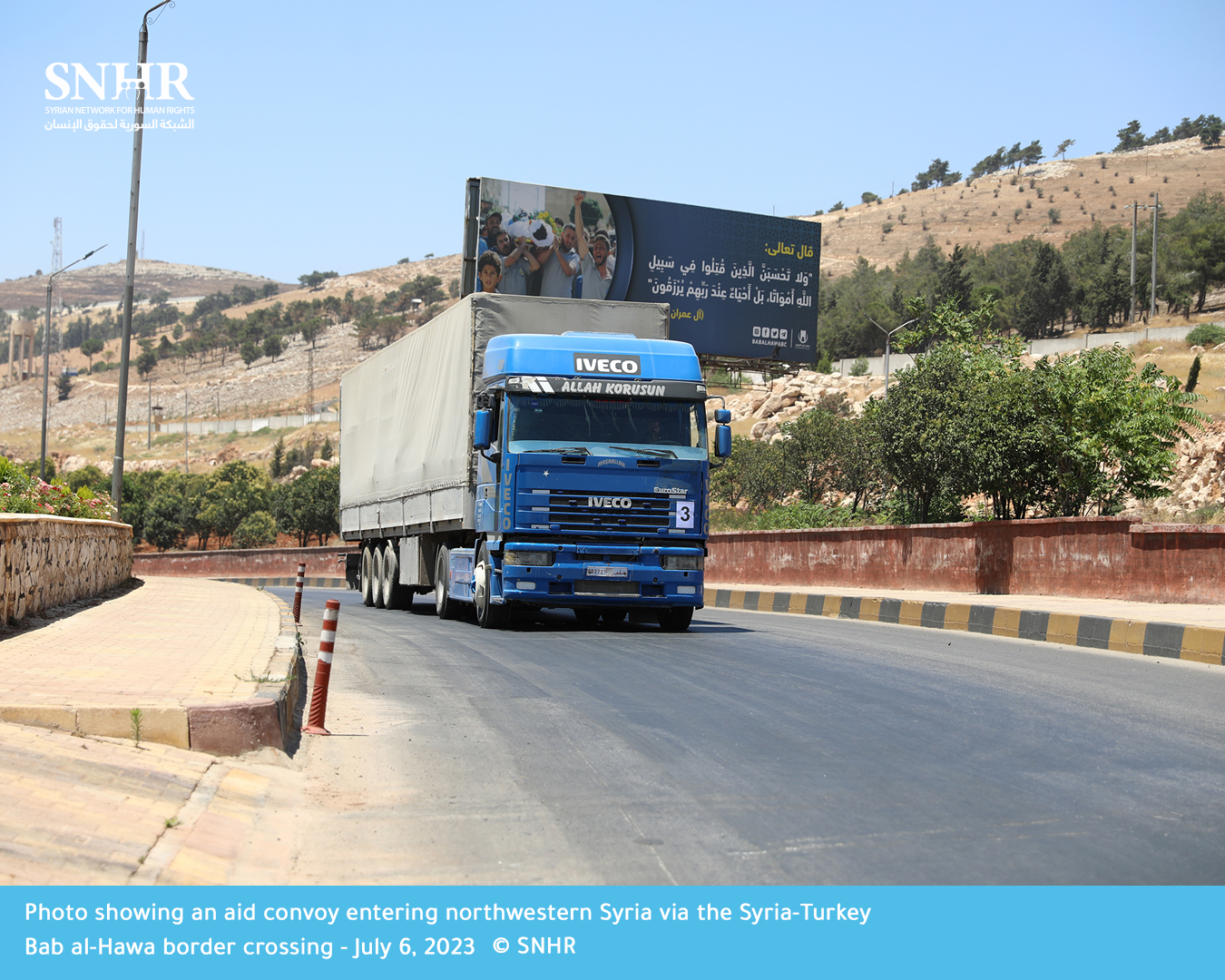
Languages
Available In
According to the UN Office for the Coordination of Humanitarian Affairs (OCHA), no fewer than 4.5 million people are currently living in northwestern Syria. The overwhelming majority of these people have relied for years on cross-border UN relief aid in a region where civilians’ needs are increasingly growing, not least because of the Syrian regime’s attacks on vital facilities and populated areas, with the most recent attack taking place only four days ago, July 4, when a ground-based attack killed a woman in al-Bara town in the southern suburbs of Idlib.
On February 6, a devastating earthquake hit southern Turkey and northern Syria. The Syrian Network for Human Rights (SNHR) released three reports documenting the tragic fallout of the earthquake on Syria and the resultant deaths, numbered at 10,024 Syrian civilian deaths in Turkey and Syria, according to our estimates. Of these, 4,191 Syrians died in non-regime areas, while 394 died in regime-held areas. Moreover, many Syrian refugees returned from Turkey to northwestern Syria, which only dramatically intensified humanitarian needs in the region.
Responding to this humanitarian crisis, the UN Security Council adopted a resolution on February 13, 2023, allowing for delivering aid for a year. However, the Syrian regime, under Russian instruction, undermined the decision, allowing only for delivering UN aid from Turkey to northwestern Syria via the Bab al-Salam and al-Ra’ie Crossings and for no longer than three months, before extending its permission for another three months on May 13.
SNHR was one of the first organizations to stress that delivering cross-border UN aid to Syria does not require a green light from the UN Security Council. In fact, we have released several reports detailing our legal reasoning and the conditions required for the delivery of aid. We have called for years for the international community to unshackle itself from the grip of Russia’s extortion, and take the step of delivering impartial, essential UN relief aid without asking for permission from the UN Security Council.


